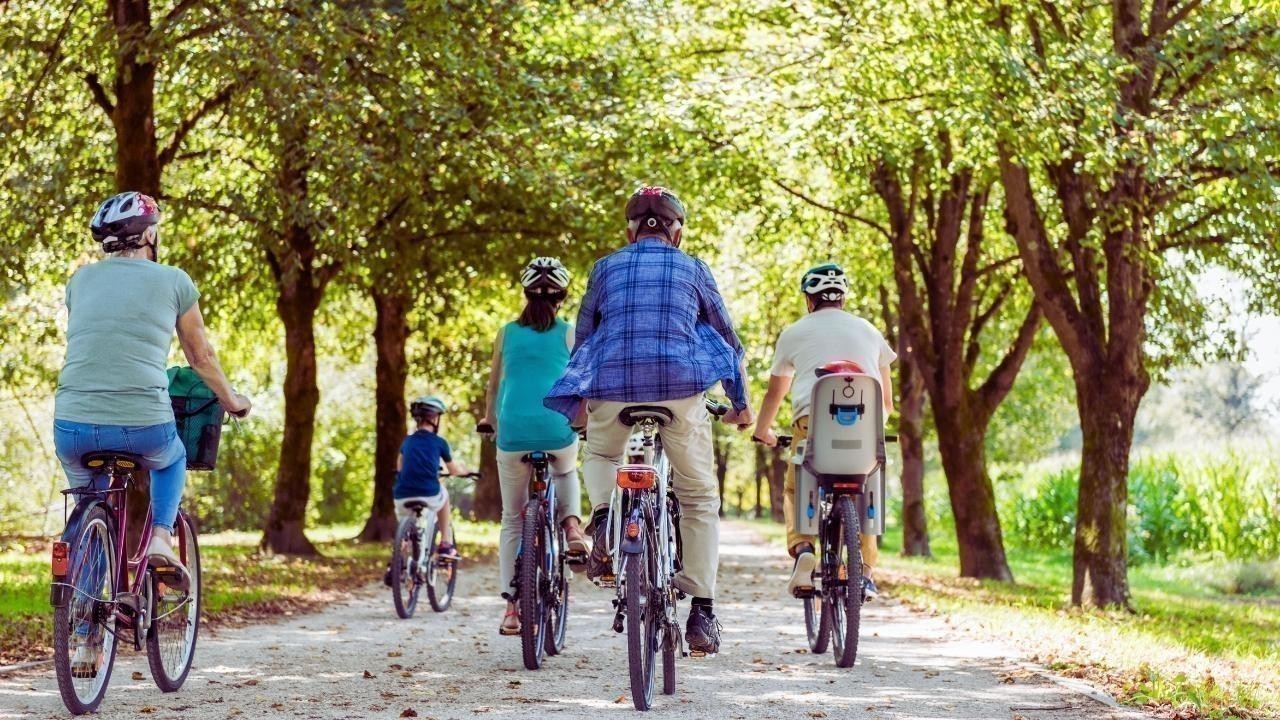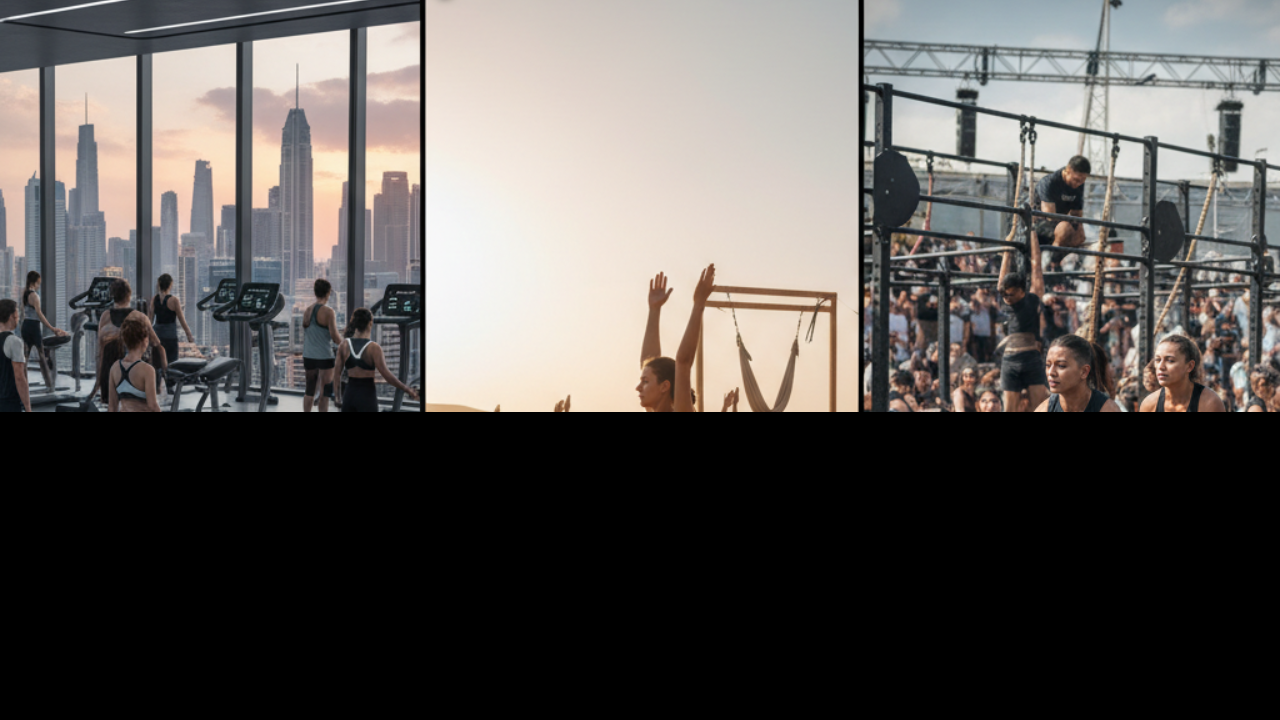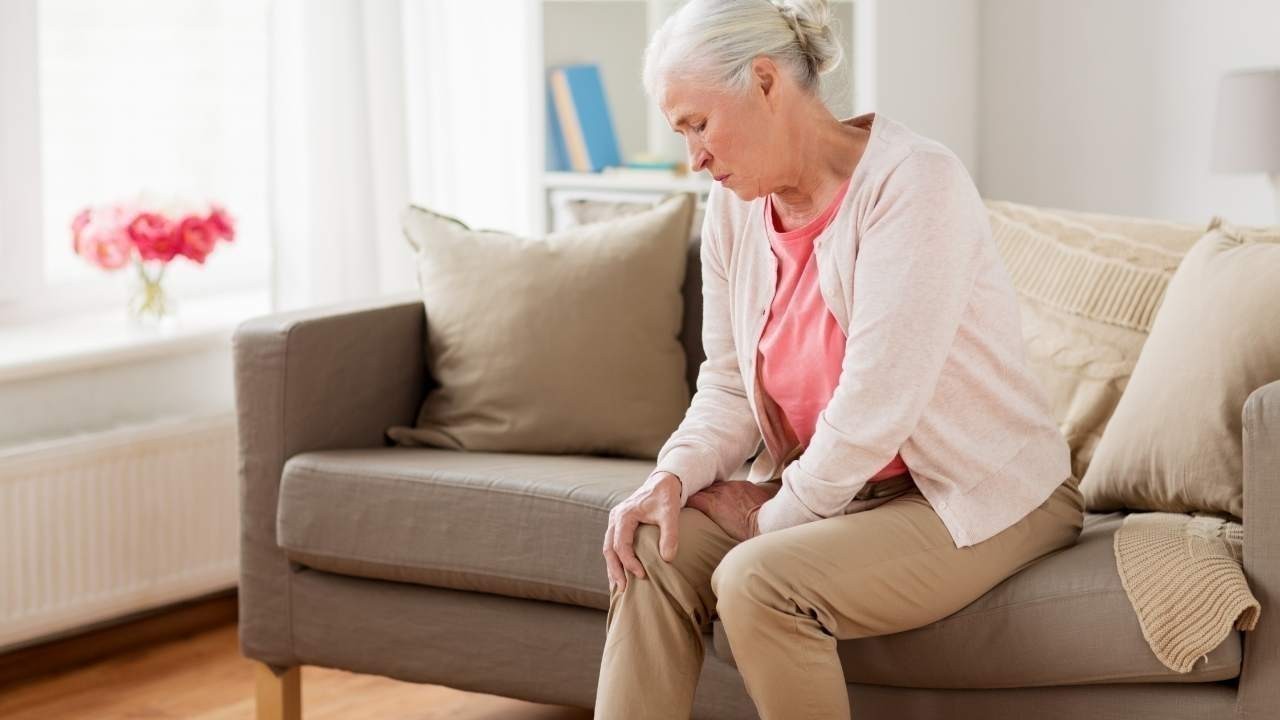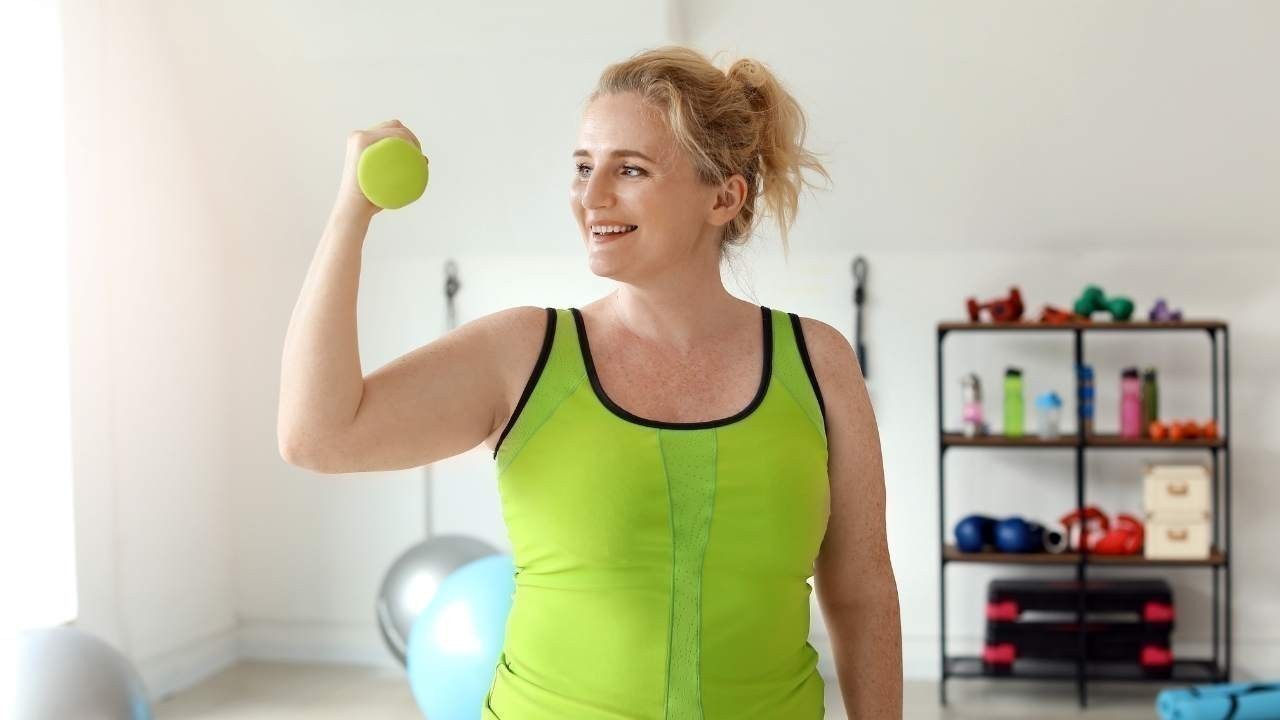
Post by : Anish
Once considered a childhood pastime or a niche sporting activity, cycling has returned to the mainstream as a major transportation alternative. Across bustling metropolises and quiet suburbs, more people are ditching cars and buses in favor of bicycles. What’s fueling this transformation? It’s a mix of rising fuel costs, environmental concerns, traffic congestion, and a growing desire for healthier living. For many modern urbanites, cycling offers freedom, flexibility, and fitness—all while reducing their carbon footprint.
One of the biggest reasons behind the cycling boom is the skyrocketing cost of fuel and the rising frustration with urban traffic. In big cities, traffic jams not only waste time but also cause significant mental stress. Cycling offers a smart solution—riders avoid traffic snarls, reach destinations quicker on shorter routes, and save considerably on daily commuting expenses. In Europe, many cities report that cycling is now faster than driving for distances under 10 kilometers, making it a time-saving option as well.
Cycling is unique—it’s transport and exercise in one package. Modern lifestyles often lead to long hours of sitting and minimal physical activity. Cycling to work or school is a simple way to incorporate daily exercise without needing extra gym time. Health experts confirm that just 30 minutes of cycling daily can reduce the risk of heart disease, obesity, diabetes, and mental health issues. For millions, cycling isn’t just about saving fuel—it’s about gaining health.
The world is becoming more climate-conscious, and transport is a significant contributor to global emissions. Cars and motorbikes account for large amounts of urban pollution, while cycling emits zero greenhouse gases. Governments, too, are promoting cycling to meet environmental targets. From city-wide bike-sharing programs to expanded cycle lanes, cycling is being positioned as a crucial tool in combating urban air pollution and reducing overall carbon emissions. People are realizing that every kilometer cycled is a small but impactful step toward a cleaner planet.
Governments and city planners have noticed the growing demand for cycling facilities. Cities like Amsterdam, Copenhagen, and Paris are globally celebrated for their cyclist-friendly infrastructure, with dedicated lanes, traffic lights, and parking spots. Now, more urban centers—including New York, London, and Singapore—are following suit. Projects focused on protected bike lanes, car-free zones, and ‘green corridors’ are making cycling safer and more enjoyable. This investment in infrastructure is encouraging more first-time cyclists to join the movement without fearing road accidents.
Electric bikes (e-bikes) have opened up cycling to a much broader audience. With pedal assistance, longer distances, hills, and even health limitations become easier to manage. E-bikes allow more people—including older adults, less active individuals, and those with physical limitations—to enjoy cycling without the physical strain. The e-bike market is booming globally, especially in urban areas where people use them to commute long distances without breaking a sweat. This inclusivity is another key factor driving the cycling comeback.
Public bike-sharing systems have transformed how people move around cities. From London’s Santander Cycles to Paris’ Velib’, bike shares have become reliable, affordable, and easy to access. Asia has seen a huge rise in bike-sharing culture, with cities like Beijing, Bangkok, and Kuala Lumpur integrating bikes into public transport systems. Commuters can easily combine cycling with trains and buses, solving the ‘last mile’ problem of urban transportation. This flexible option has made cycling more mainstream than ever before.
The COVID-19 pandemic played a surprising role in reviving cycling culture. Lockdowns reduced public transport use, and cycling emerged as a safer, socially distant commuting option. As gyms closed, people turned to bicycles for outdoor fitness. Many cities reported record-breaking bike sales during the pandemic, with some even struggling with shortages due to high demand. Though lockdowns have eased, the cycling habit has stuck with many, creating a lasting positive impact on urban commuting patterns.
Cycling is not just good for the body—it’s great for the mind. Studies show regular cycling helps reduce stress, anxiety, and depression. Outdoor cycling offers fresh air, scenic routes, and a chance to disconnect from digital devices. Many cyclists describe their rides as meditative, giving them clarity and relaxation during their busy days. This mental wellness angle is drawing more people toward cycling as a simple, low-cost way to improve overall well-being.
Another remarkable aspect of the cycling comeback is the growing participation of women. Across the world, female cyclists are taking to the roads, joining clubs, and participating in commuting and recreational cycling. Women’s cycling groups, safety advocacy campaigns, and female-friendly cycling events are helping create a safer, more welcoming environment for women riders. From urban commuters to endurance cyclists, women are reclaiming public spaces on two wheels.
Cycling has evolved beyond a commute into a thriving social activity. Cycling clubs, weekend riding groups, and charity cycling events are bringing people together. In many cities, cycling cafes and social rides are booming. The sense of belonging and community is a strong pull factor—many people stay motivated to cycle because it offers friendships, adventure, and shared experiences. For urban dwellers often caught in isolated routines, cycling is proving to be an antidote to loneliness.
Businesses are also getting on board, promoting cycling to improve employee well-being. Corporate wellness programs now include cycling challenges, and some companies provide facilities like bike parking, showers, and changing rooms. Forward-thinking employers are realizing that cyclists are healthier, more punctual, and less stressed. In response, they are encouraging bike-to-work schemes and offering financial incentives, making cycling even more appealing to working professionals.
Major cycling events like Tour de France, Giro d'Italia, and Vuelta a España have always thrilled sports fans. Now, they’re also inspiring everyday people to pick up bikes. Many cities host local amateur races, city cycling festivals, and charity rides, creating accessible entry points for new cyclists. Watching elite athletes excel on two wheels motivates more people to consider cycling as an achievable and rewarding hobby.
Despite the growth in cycling culture, challenges remain. Road safety, theft, and lack of proper cycling lanes in many cities still discourage potential riders. Cycling advocates are calling for stricter road safety laws, more cyclist-friendly infrastructure, and public education campaigns to promote sharing the road. Continued improvements will be key to making cycling safer, particularly in busy urban areas.
Cycling’s resurgence is reshaping how modern cities function. From reducing traffic to cutting pollution, improving mental health, and building community ties, the benefits of cycling are numerous. With sustained investment, better policies, and growing awareness, cycling is set to become the backbone of urban mobility in the future. For millions, two wheels are not just a commute—they are a step towards a happier, healthier, and greener life.
This article is intended for informational purposes only and does not promote any specific product or cycling company. Readers should consult local regulations and take appropriate safety measures while cycling.

Easy Healthcare Access in UAE Through Top Pharmacies & Apps
Explore the best pharmacies and health apps in UAE 2025. Get medications, book appointments, and acc

Navigating UAE Healthcare Costs: An Essential Financial Guide for Expats
Planning a move to the UAE? Learn to navigate the mandatory health insurance, private vs public hosp

Crucial Updates to Medical Fitness Tests for All New and Renewing UAE Residents
Planning your move to the UAE in 2025? Get the latest on mandatory medical fitness tests, required v

Finding Your Support: A 2025 Guide to Top Mental Health Therapists and Clinics in the UAE
Navigate mental wellness in the UAE for 2025. Discover highly-rated clinics, expert psychologists, a

The Ultimate UAE Heat Survival Guide: 10 Essential Hydration and Lifestyle Secrets
Master the UAE’s hot climate with these 10 proven, human-written hydration and lifestyle tips. Learn

Find Affordable Healthcare Options in Dubai & Sharjah Without Compromising Quality
Discover budget-friendly clinics in Dubai and Sharjah for expats. Get quality healthcare at affordab

Discover the Most Popular Fitness Trends Expats and Locals Are Following in UAE
Explore top fitness trends in UAE 2025 including gyms, yoga, CrossFit, and wellness activities. Stay

Effective Ways to Reduce Joint Pain and Stiffness This Winter
Learn simple ways to reduce joint pain and stiffness this winter with warmth exercises diet tips and

Facial Sculpting and Non Invasive Techniques Safe Beauty Trends for the Future
Explore facial sculpting and non invasive techniques shaping beauty care Safe affordable and natural

Body Positivity Embracing Self Love Confidence & True Beauty
Celebrate body positivity embrace self love reject false beauty ideals and discover confidence at ev

Skin Microbiome Secrets to Healthy and Balanced Skin
Explore the skin microbiome its role in skin health and simple ways to keep your skin balanced healt

Sarcopenia How Aging Steals Muscle and Ways to Stay Strong
Discover sarcopenia the silent muscle loss with age its signs causes and simple ways to stay strong

Cultural Appropriation vs Appreciation Respecting Global Traditions
Learn the difference between cultural appropriation and appreciation to respect traditions and celeb

Uniform and Rebellion How Personal Identity Thrives Within Rules
Explore how uniforms shape identity and spark subtle rebellion blending conformity with personal exp

The Unseen Labor Behind Fashion Inside the Secret Stitch
Discover the hidden world of fashion labor and the secret stitch behind every garment Honor the hand